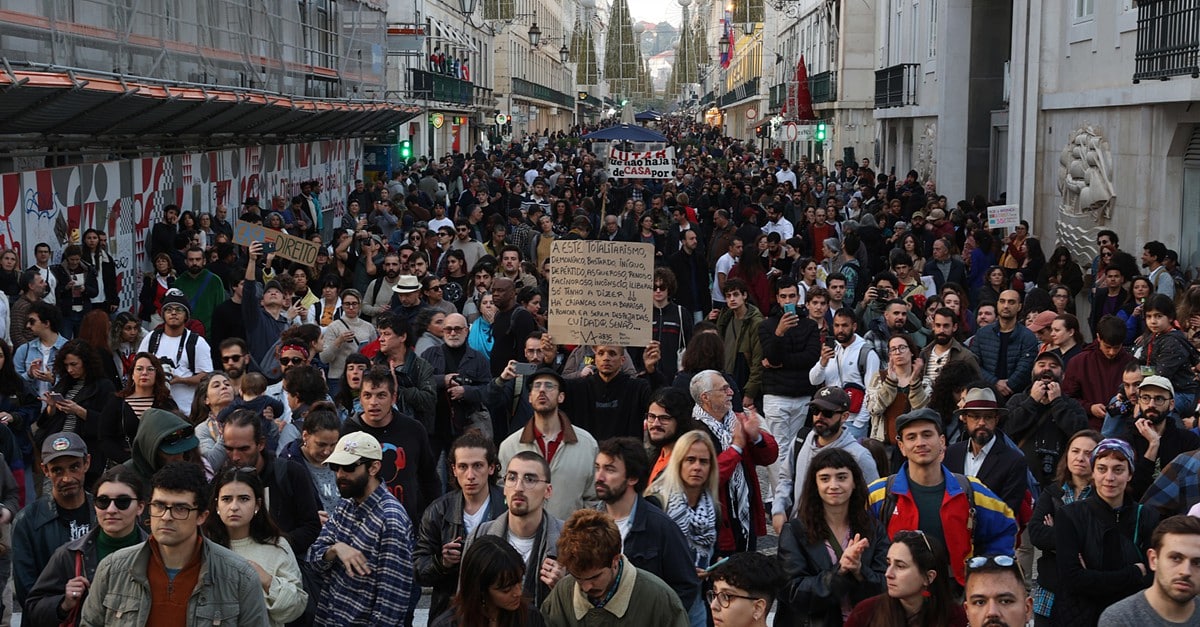Only 10% of respondents to an Amnesty International study have taken part in a demonstration in the last five years and almost half think these events should be organized, with 35% advocating the criminalization of civil disobedience.
The Amnesty International (AI) investigation, entitled “Freedom as a Flag”, is about the right to demonstrate in Portugal and is based on a survey carried out in partnership with the Catholic University of Lisbon of 1,001 Portuguese residents over the age of 16.
“This work integrates the current challenges of this individual and collective exercise, exposing cases of alleged human rights abuses in the course of enjoying the right to demonstrate,” says AI.
The results of the survey show that 90% of people have not taken part in any demonstration since 2018, including not only more traditional protests such as parades and strikes, but also parish council meetings, for example.
“Participation in this type of event, however, is not equivalent for all social categories in this survey, being much higher among the more educated (17% among those with higher education) than among the less educated (3%). It is also higher among voters for parties on the left than among voters for parties on the center and right of the Portuguese political spectrum,” reads the document.
On the other hand, almost half of those surveyed (47%) think that these actions have to be authorized, despite the fact that the Portuguese Constitution is clear when it states that “citizens have the right to assemble peacefully and without arms, even in places open to the public, without the need for any authorization”.
The reason for this has to do with the fact that 1974 legislation is still in force, according to which “persons or entities wishing to hold meetings, rallies, demonstrations or parades in public places or places open to the public must give the mayor at least two working days’ notice in writing”.
Even so, 82% said they had never felt their rights as a protester had been restricted.
Among the issues that have most motivated protest actions, workers’ rights/employment/unemployment (3%), education (2%) and housing (2%) top the list.
While 84% believe that demonstrations are important for debating ideas in a democracy, opinions are divided when it comes to civil disobedience, which includes actions such as cutting off roads, blocking airplanes or painting building façades.
Proof of this can be seen in the fact that almost half of those surveyed (49%) believe that acts of disobedience are illegitimate, while 59% support criminalizing them, a position that is more pronounced “among the better educated and those aged between 25 and 54”.
Regarding police action, 37% think that “there is partiality in the treatment” of demonstrators, depending on who organizes the demonstration, and AI’s own investigation includes cases of alleged abuse of authority towards activists, especially women.
In conclusion, AI suggests, among ten proposals, that the 1974 decree-law be revised, that the requirements for notifying demonstrations be treated as warnings, that all municipalities publish data on the number of demonstrations, that the training of police forces be reviewed or that policing guarantee the safety of journalists or other observers.









